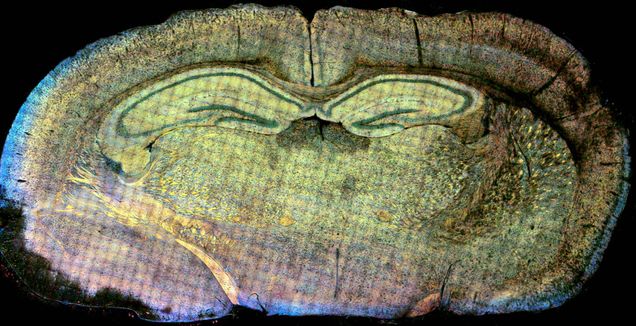Professor Ji-Xin Cheng and Coworkers Published in Nature Communications
By Caroline Amato
 BU researchers reported an ultrafast fingerprint-stimulated Raman spectroscopic imaging platform, with broad applications to cancer metabolism, brain mapping, and biofuel production, in Nature Communications on May 24th, 2021. This work was funded by grants from the Department of Energy and the NIH.
BU researchers reported an ultrafast fingerprint-stimulated Raman spectroscopic imaging platform, with broad applications to cancer metabolism, brain mapping, and biofuel production, in Nature Communications on May 24th, 2021. This work was funded by grants from the Department of Energy and the NIH.
ECE Professors Ji-Xin Cheng and Lei Tian collaborated with BME Professors Mary Dunlop and Wilson Wong to develop the new biotechnology at the intersection of photonics and synthetic biology, two convergent areas of research in the BU College of Engineering. The corresponding author, Professor Cheng, and the rest of the faculty developed a fingerprint spectroscopic SR platform that obtains an SRS spectrum with no warps through a polygon scanner. At the same time, they were able to improve the signal-to-noise ratio by using a spatial-spectral residual network.
Imaging by stimulated Raman scattering (SRS) provides never-seen-before understanding and perception into chemical distributions. SRS can resolve chemicals in complex environments when in the fingerprint region. SRS in this state is not practical for studying living cells and samples because the Raman cross-sections are weak and lack high spectral fidelity. This work created a system that allows fast vibrational spectroscopic imaging of chemicals in samples ranging from a “single live microbe to a tissue slice.”
 Professor Cheng joined the College of Engineering at BU in 2017. For his pioneering contributions to innovation, discovery, and clinical translation of chemical imaging technologies, Cheng received the 2020 Pittsburgh Spectroscopy Award from the Spectroscopy Society of Pittsburgh, the 2019 Ellis R. Lippincott Award jointly from the Optical Society of America, Society for Applied Spectroscopy, and Coblentz Society, and the 2015 Craver Award from Coblentz Society. Cheng is also a Fellow of the Optical Society of America and the American Institute of Medicine and Biological Engineering. In 2020, Cheng received a 2.9 million MIRA award from NIH for his outstanding research in vibrational spectroscopic imaging. He was also awarded a $2.4 million grant by the NIH earlier this year to develop an intravascular photoacoustic imaging catheter for the detection of vulnerable plaques.
Professor Cheng joined the College of Engineering at BU in 2017. For his pioneering contributions to innovation, discovery, and clinical translation of chemical imaging technologies, Cheng received the 2020 Pittsburgh Spectroscopy Award from the Spectroscopy Society of Pittsburgh, the 2019 Ellis R. Lippincott Award jointly from the Optical Society of America, Society for Applied Spectroscopy, and Coblentz Society, and the 2015 Craver Award from Coblentz Society. Cheng is also a Fellow of the Optical Society of America and the American Institute of Medicine and Biological Engineering. In 2020, Cheng received a 2.9 million MIRA award from NIH for his outstanding research in vibrational spectroscopic imaging. He was also awarded a $2.4 million grant by the NIH earlier this year to develop an intravascular photoacoustic imaging catheter for the detection of vulnerable plaques.
Professor Tian is a recipient of an NSF CAREER Award (2019), a Boston University College of Engineering Early Career Excellence in Research Award (2021), Dean’s Catalyst Award (2018), a Hariri Institute Research Incubation Award (2019), and the Boston University Nanotechnology Pilot Grant Award (2017). He also received The Fumio Okano Best 3D Paper Prize (2018). He is a member of OSA, SPIE, and the Topical Editor of Applied Optics. His research interests are in the area of computational imaging and sensing, computational microscopy, imaging in scattering media, phase retrieval, and neurophotonics.
